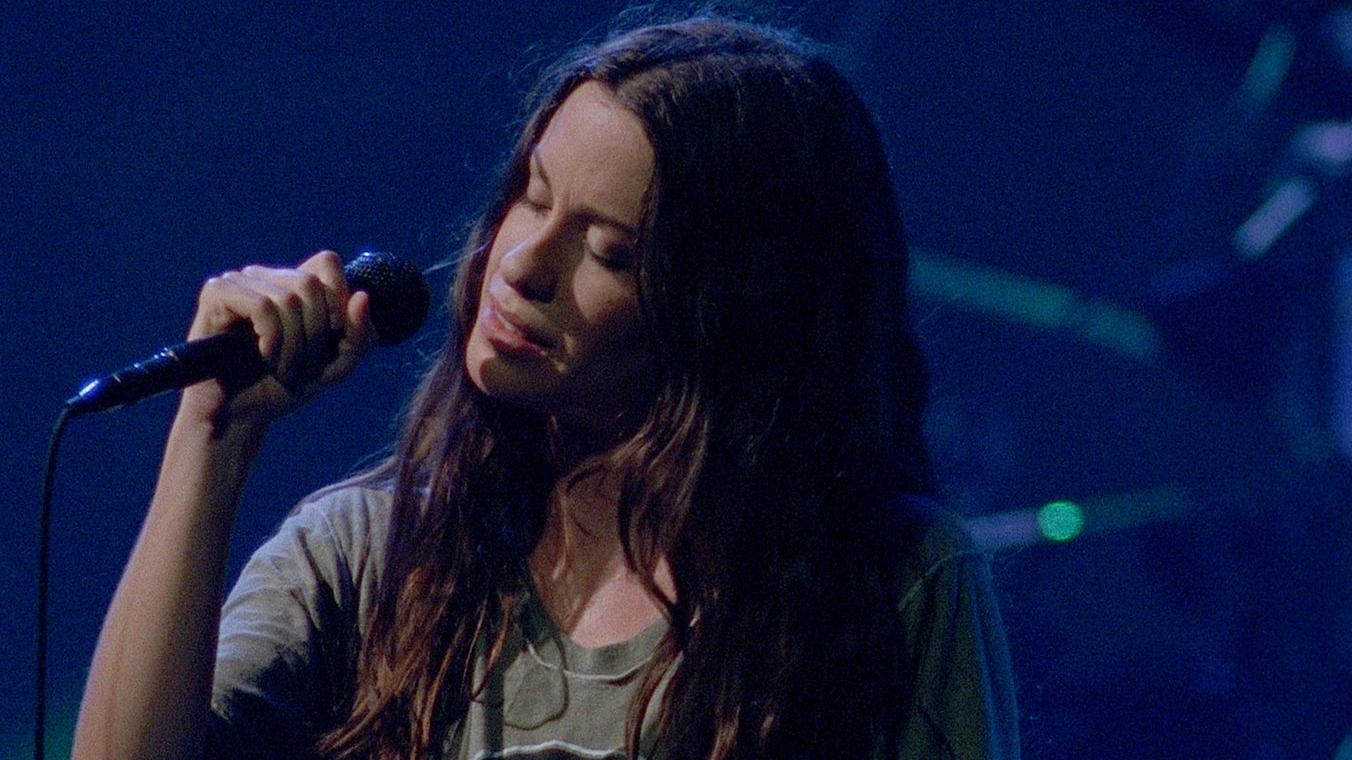Jagged is a riveting reminder of Alanis Morissette’s power, charisma, and influence
This music-packed HBO documentary is a delightful ’90s time capsule that doubles as a sharp social and cultural analysis

There’s a moment in the riveting documentary Jagged where Lisa Worden, the one-time program director of influential Los Angeles radio station KROQ, describes the first time she heard Alanis Morissette’s “You Oughta Know,” the “You’re So Vain” of the ’90s. Station employees tended to listen to music at top volume, she said, and the song was playing at the excited urging of Guy Oseary, who had just signed Morissette to Madonna’s label, Maverick Records.
Jagged then cuts to the song’s music video—featuring a long-haired, moody Morissette in a desert locale and then looking like a whirling dervish as she fronts a band—and allows the music to simmer and build up through the explosive first chorus. Any plot advancement or commentary pauses; instead, Morissette’s music grabs the spotlight and commands our attention.
It’s a rather excellent and true-to-life replication of how stunning it felt to hear “You Oughta Know” booming out of speakers back in 1995, and a welcome reminder of Morissette’s revelatory presence. Jagged, the second film released from the Music Box documentary series Bill Simmons is producing for HBO, does an admirable job capturing the musician’s rise to fame. Using archival concert and news footage, as well as vintage and new interviews, the film focuses on the creation and subsequent success of the multi-multi-multi-platinum 1995 debut album, Jagged Little Pill. The documentary ends up both a delightful ’90s time capsule and a sharp analysis of the social and cultural forces that shaped Morissette’s career—for better and worse.
Like many documentaries, Jagged adds positive supporting interviews from music industry executives, journalists, and collaborators; these include her Jagged Little Pill producer/co-writer Glen Ballard, Dogma director Kevin Smith and Garbage’s Shirley Manson. Ballard and Manson are especially insightful, with the former describing Morissette’s mindset after moving to Los Angeles in the early ’90s, her career as a teen pop idol in Canada over thanks to being dropped by her record label: “She was looking for someone to be an artist with.”
Smartly, director Alison Klayman amplifies this artistry by foregrounding Morissette’s voice and music. She incorporates plenty of inspiring footage filmed on the Jagged Little Pill tour that shows off the singer’s mesmerizing, cathartic stage charisma. Morissette herself also sits for frank and perceptive interviews about her life, music, and creative process. “His big question was, ‘Who are you? What do you want to write about?’ What’s going on for you?’” Morissette said of Ballard as they started working together. “And what a lovely prompt. Nobody’s asked me that—ever.” This nurturing creative environment led to Jagged Little Pill, a record that captured the complicated experience of being a strong young woman coming into her own: finding pockets of joy, mirth and ecstasy while processing trauma, recovering from negative relationships and pushing back against oppressive, male-driven systems.
The idea of power—who possesses it, who wields it responsibly, who abuses it—is one of Jagged’s compelling (if sobering) themes. Early on, it focuses on Morissette’s pre-Jagged Little Pill life in Canada, including a stint on the cult Nickelodeon TV show You Can’t Do That On Television and her career as an ’80s teen pop phenom. Like many child stars, she dealt with adults acting inappropriately—she recalls being hit on starting at around age 15—and developed an eating disorder after having her weight scrutinized. The matter-of-fact way Morissette describes being deprived of food is horrifying; at one point, she recalls sneak-eating cheese slices on a video shoot and being chided the next morning for the supposed indiscretion.
 Keep scrolling for more great stories.
Keep scrolling for more great stories.
